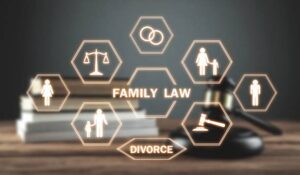what happens if a defendant does not appear in court
What happens if the parties, Plaintiff or Defendant, do not show up in Court for the trial?
When a plaintiff wins a lawsuit by default judgment because the defendant fails to appear and properly respond to the claims against them, serious consequences result. Defendants may fail to act for a variety of reasons – some excusable, some negligent. But when a defendant then also fails to show up in court to fight the default judgment, the outcome is dire.
So what happens when a defendant doesn’t appear in court after a default judgment? Simply put, the consequences can be severe and long lasting if the judgment is allowed to stand unchallenged. The court will not overturn the judgment without the defendant making the effort to show up and argue against it. Let’s take a closer look at why a defendant might not appear at the default judgment hearing and what they can expect as a result.
Consequences of Not Appearing to Vacate a Default Judgment
When a defendant doesn’t show up in court to ask the judge to vacate (overturn) the default judgment against them, the immediate result is that the judgment remains intact. The plaintiff who originally sued then has the green light to proceed with aggressive collection efforts to recoup what they are owed per the judgment.
The Default Judgment Will Stand
Without the defendant making an appearance and motion to vacate the default judgment, the judge has no reason and no procedural basis to reconsider and withdraw the judgment. Right or wrong, fair or unfair, the court entered a binding civil judgment and damage award against the defendant – and that judgment will stand indefinitely if unchallenged.
With a standing default judgment, the plaintiff can forcibly collect by attaching bank accounts, garnishing wages, placing property liens, foreclosing on real estate, and more. The full power and resources of the court can be leveraged to seize assets and income sources. The defendant loses all rights to contest the judgment moving forward.
Additional Penalties May Be Imposed
On top of the existing judgment amount owed, defendants who fail to appear to fight the default judgment expose themselves to additional fines, fees, and sanctions. These can include:
- Fines and fees: Courts can assign additional monetary sanctions like contempt of court fines and processing fees to defendants who ignore orders to appear. These quickly inflate the total judgment debt owed.
- License suspensions: For some civil judgments, courts can suspend professional licenses and driving privileges to punish non-compliance with court directives. This restricts livelihoods.
- Wage garnishments: Plaintiffs can request orders to have 25% or more of the defendant’s wages garnished until the judgment is satisfied. This leaves defendants struggling to pay basic living expenses.
Long-Term Damage to Finances and Credit
The full enforcement of a lingering default judgment can financially debilitate defendants for years. In addition to the seizure of assets, bank account levies, and garnished income, the defendant’s credit score and report suffer lasting damage from courts judgments for the entire lifecycle of the judgment (typically 5-7 years in most states).
With damaged credit, defendants struggle to qualify for loans and mortgages. They may even have trouble opening basic utilities and getting approved for rental housing. The financial carnage resulting from an unchallenged default judgment can be extensive.
Reasons a Defendant Might Not Appear
Given the array of devastating consequences outlined above, why would a defendant allow a default judgment against them go unanswered by not appearing to fight back? There are a variety of possible reasons.
Didn’t Receive Proper Notice
In some cases, defendants claim they were never properly served notifications about the lawsuit or about impending court dates. If documents were delivered to an old address or the notice was illegally posted on a front door rather than handed directly to the defendant, there may be legitimate claims of insufficient service. The courts often still consider notice served valid, however.
Couldn’t Get Off Work
For lower income defendants or those working hourly jobs without paid time off benefits, appearing in court means missing vital hourly wages or even risking their employment status. For those living paycheck to paycheck, a day in court can seem like an impossible sacrifice even if it means avoiding default.
Didn’t Take the Lawsuit Seriously
Some defendants are dismissive when they receive notice they are being sued and assume the threats are a scare tactic or won’t amount to much. By ignoring lawsuit papers and skipping court appearances, however, defendants inadvertently trigger catastrophic default judgments against themselves.
Couldn’t Afford an Attorney
Navigating the complex civil court system without a lawyer versed in debt defense and consumer law is extremely difficult. Yet attorney assistance is expensive. For lower and middle income defendants, hiring legal help often feels totally unaffordable upfront. The result is many navigate the process alone right into default.
Other Barriers to Appearing
Life circumstances like medical disabilities, childcare demands for single parents, lack of transportation in rural areas or insufficient language translation resources provided by courts may also create barriers to appearance. Some vulnerable populations therefore resort to non-appearance inadvertently while others purposefully avoid confronting a court they feel would discriminate against them or fail to understand their needs.
Alternatives to Appearing in Court
If court appearance is totally impractical either when initially sued or when attempting to vacate a default judgment, defendants do still have some secondary options at their disposal. Though none are perfect solutions, a few alternatives that may provide a measure of legal protection include:
File a Motion to Reopen the Case
This requests that the court reopen arguments on the default judgment by vacating the original decision. Grounds are limited to reasonable justifications like defective service of process, incomplete court filings by the plaintiff, or failure to follow proper legal procedures. Strict time limits usually apply for these filings, however.
File an Appeal
With the aid of legal counsel, defendants can potentially file appeals to challenge default judgment decisions in higher county, state or federal courts. Success rates of appeals are very low, however, and the costs and complexities of navigating appeals make them unrealistic for many debtors.
Negotiate Settlement with Plaintiff
Some plaintiffs may be open to negotiating payment plans, reduced lump sum settlements, or withdrawn judgments in return for consistent payments over time. However, after obtaining a default judgment they have zero obligation to settle creditor debts they have already won by court order. Many pursue full enforcement regardless.
File Bankruptcy
While bankruptcy filings don’t dissolve civil court judgments, they can eliminate or restructure other unsecured debts. This frees up income that can then be put towards paying off the judgment over time. However, bankruptcies ruin credit ratings nearly as badly as default judgments on their own.
What to Do If You Miss the Court Date
For defendants who regret not showing up to fight their case sooner, finding themselves facing imminent wage garnishment or property seizure via default judgment enforcement, critical next steps should be taken right away:
Act Quickly!
Motions, appeals, settlement offers, and bankruptcy petitions all become harder to successfully file and argue when significant time has passed since the entry of the original default judgment. In many jurisdictions, only 1-2 months are allowed for motions to reopen a dismissed case. Extensive delays close doors.
Seek Professional Legal Help
Navigating urgent motions or appeals without an attorney when a default judgment is being actively enforced against you is playing with fire. While case timelines and legal complexities make self-navigation challenging, an experienced lawyer can best advise you on the options and strategies still available specific to the statutes and codes applying to your unique judgment.
Request a Payment Plan
Communicating with the judgment holder that enforcing the full amount via immediate wage garnishment or property seizure will leave you penniless and unable to support family obligations may motivate them to accept smaller installment payments over several months instead. They have no obligation to do so, but it can’t hurt to try.
Adjust Finances to Account for Garnishments
When an existing default judgment is already being enforced, expect notifications of wage garnishments and bank account levies imminently if not already underway. Drastic reductions in take-home pay require most debtors to radically change their budgeting and spending to pay for housing, transportation and healthcare.
Small Claims Court Judgments
Receiving the Judge’s Decision
After the trial, the judge may decide the case right away and announce the judgment in court. Or the judge may take time to further review before deciding. This is called “taking it under submission.”
Taking Case Under Submission
If the judge takes the case under submission, the parties will receive the written Notice of Judgment in the mail once the judge does decide. This allows the judge more time to review evidence, research the law, or consult an expert before making a ruling.
Explanation of Ruling
If you disagree with the judgment, you may write the court to ask for an explanation of why the judge ruled that way. But the court is not legally required to provide an explanation. You may also write the judge or court administrator to give feedback on your small claims court experience, good or bad. This helps the court monitor performance of judges and staff.
Consequences of Ignoring a Lawsuit and Default Judgment
Defendants who bury their heads in the sand after being sued and ignore subsequent default judgments do so at their extreme peril according to years of precedent. Plaintiffs granted court judgments have little incentive against pursuing collection by any means necessary. The outcomes for defendants as a result are frequently devastating.
No Legal Relief
Plaintiffs with judgments rightfully argue defendants had their opportunity to argue their case or file appeals and failed to exercise their legal rights appropriately. Courts therefore have zero obligation to intervene or offer defendants procedural assistance once opportunity to act has passed. Defendants lose all future rights.
Serious Financial Damage
Financially, the enforced collection powers held by plaintiffs can ruin defendant debtors indefinitely. With access wage garnishment, property liens, and bank account levies, they can drain accounts down to nothing and drive once stable households into bankruptcy and reliance on public assistance to survive.
Long Term Credit Impacts
Years spent rebuilding financial lives are common after default judgments decimate credit scores and saddle debtors with court judgments appearing on credit reports. Unless paid in full, many judgments stay visible to other creditors for 5-7 years dragging down credit ratings critical for obtaining loans, credit cards and big purchases.
Potential Civil and Criminal Charges
In particularly egregious cases where defendants actively hide income and assets or flee jurisdictions to avoid enforcement, additional civil contempt of court and tax evasion criminal charges may result on top of the financial world collapsing down around the defendant under the crushing weight of their ignored default judgment.
Conclusion
As outlined above, the risks associated with ignoring service of process and failing to appear in court to avoid default judgments are massive. And doubling down on that negligence by then also ignoring the default judgment triggering active enforcement via wage garnishment, property seizure and asset attachment can financially devastate debtors for years and years.
Defendants have options – including various motions, appeals requests, negotiated settlements and bankruptcy filings – that may help overturn or negate the worst consequences of an existing default ruling. But these take time, money and legal assistance to pursue in most cases. As always, an ounce of prevention ahead of time – usually just showing up to court appearances – typically proves worth much more than the worst case scenario of trying to get out from under a properly rendered post-judgment collection effort.
The moral: don’t ignore legal problems no matter how small or non-threatening they seem at first. Instead respond promptly, seek affordable legal help even answering initial lawsuit summons, and ensure you take the procedural steps to appear or arrange alternate representation if ever sued by a creditor or third party seeking payment. Doing this provides the best chance of avoiding financial decimation and seized assets down the road!
Frequently Asked Questions
Q: Can I represent myself in court to fight my default judgment successfully?
Most legal experts warn against it. The complex civil procedure rules, court decorum expectations and legal standards mean the odds are stacked against defendants without counsel. Seeking an affordable lawyer is wise.
Q: What if I can’t afford to pay off my default judgment debts?
You may qualify for consumer credit counseling assistance, debt consolidation services, personal bankruptcy and other options depending on state laws and personal finance specifics. Discuss relief programs that may stop collections activity with a local financial advisor.
Q: Do I have to tell my employer about a court default judgment?
Typically not. But once plaintiffs issue requests for wage garnishment orders to enforce unpaid judgments, employers are legally obligated to deduct and submit a portion of your wages to the court as stipulated. Advance notice may help employers plan.
Q: Can outstanding default judgments be sealed from public view?
It depends, but typically no. Civil court records reflecting unpaid judgments are considered public record in most states. Some motions can attempt to seal for privacy reasons but high legal thresholds exist. Bankruptcy petitions stop collection efforts but don’t erase negative credit reporting.
Q: What if I have evidence the plaintiff obtained the judgment fraudulently?
Bringing proof of fraud perpetrated on the courts, such as fabricated evidence or intentionally false testimony, could get a default judgment vacated. But extraordinary evidence is required and considerable legal hurdles exist. Consult an attorney before alleging fraud claims.








